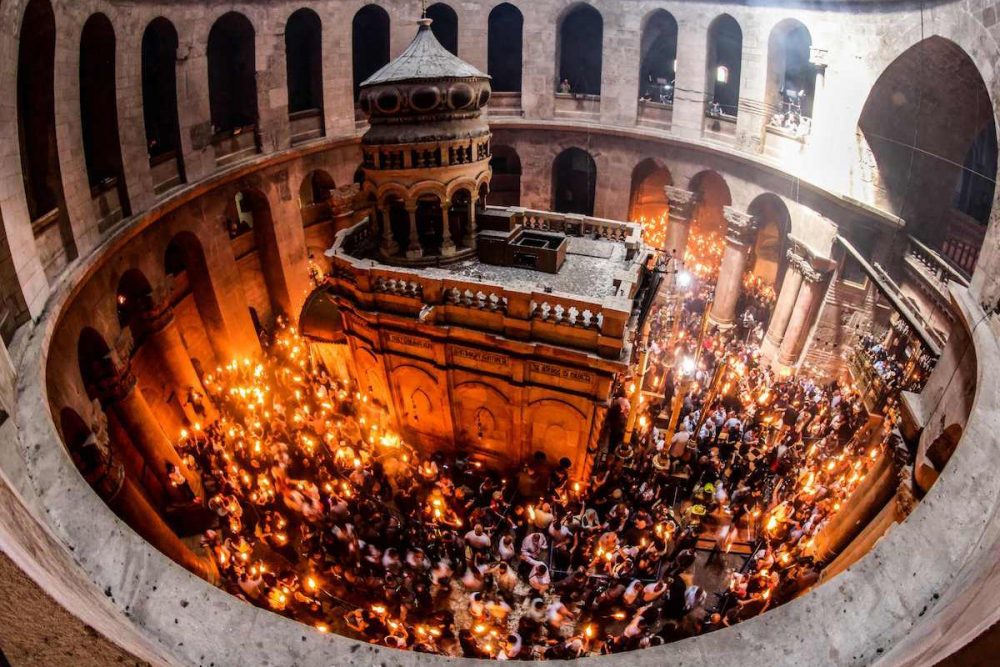Fr Paolo Consonni, MCCJ
The birth of a baby girl this week, the daughter of a couple who are good friends of mine, filled me with joy. A long journey brought this lovely, young couple together into marriage. The birth of their daughter now makes their marriage reach full maturity. I feel truly happy for them.
It is almost impossible to experience the birth of a human being only from a purely biological point of view. Too many emotions are involved. The marvellous complexity of the whole process of pregnancy fills us with wonder, and the painful and long labor during childbirth is a reminder that life can never be taken for granted. The fragility of a newborn life only increases its preciousness. In the end, believers or not, we all perceive birth as a gift.
Resurrection is also a birth into new life passing through the pangs of death. How did Jesus experience it? Both the Scriptures and Tradition can help us to have a glimpse into His personal perspective in those defining moments.
On one hand, Jesus, as the Son of God, rose from death by virtue of his divine power. Jesus affirmed explicitly: “I lay down my life, that I may take it up again. . . I have power to lay it down, and I have power to take it up again” (Jn 10:18).
At the same time, as the Catechism well explains, the Father’s power “raised up” Christ, his Son. The Resurrection is “the manifestation of God’s power through the working of the Spirit who gave life to Jesus’ dead humanity and called it to the glorious state of Lordship” (cf. CCC 648-649).
I find it extremely interesting that both affirmations are true and correct. Yes, we can say that Jesus Christ “actively” raised himself up from death because He Himself is God, the second Person of the Trinity and therefore He had the power to do so. Death could not imprison the Son of God into the tomb forever. But this affirmation, while true, does not fully express the “human” experience of Jesus on the Cross. There, he was called to trust the Father while feeling utter pain and abandonment. However, His cry on the cross, “My God, my God, why have you forsaken me?” (Mk 15:34), was met by a silence, and was not fully addressed.
The Resurrection is the final and complete answer. Christ “was raised” by the Father through the power of the Holy Spirit and confirmed as the beloved Son, triumphant over His enemies. In His Encyclical Letter Dives in Misericordia, Pope John Paul II wrote that “the Son of God in His resurrection experienced in a radical way mercy shown to Himself, that is to say, the love of the Father which is more powerful than death” (n. 8). In that first Easter, Jesus proved that the Father’s love is indeed faithful and everlasting. In other words, Jesus experienced the Resurrection not as a predictable ending to his earthly mission, just because He was God, but as a real gift of love and mercy from the Father, offered to Him through the Holy Spirit who permeated His new risen body. The whole Trinity was therefore involved in this triumph of love over evil and death.
In the creed, we affirm that the Son of God is eternally begotten by the Father before all ages. But in the Resurrection, Jesus experienced this generation in a new way, because His humanity, healed of all its wounds and glorified, definitely became part of God Himself. By raising Jesus from the dead, “the Father introduced his Son’s humanity, including his body, into the Trinity,” says the Catechism (CCC 648). It’s indeed a new life, and a new way of being Son, that was inaugurated at Easter.
A gift of love acquires more meaning if it is shared. Christ constantly shares his new risen life with all of us and with all creation. This is how the Catechism, quoting the Scriptures, ends the section on this topic: “Christ’s Resurrection – and the risen Christ himself is the principle and source of our future resurrection […]. The risen Christ lives in the hearts of his faithful while they await that fulfilment. In Christ, Christians have tasted the powers of the age to come and their lives are swept up by Christ into the heart of divine life, so that they may live no longer for themselves but for him who for their sake died and was raised” (CCC 655).
It is a fitting end. We receive life so that we may transmit life, not only biologically, but also spiritually. Through Baptism, we too have experienced God’s faithful love which gives meaning to our lives. As God’s children, we are then sent like Jesus, to become a gift of love —fragile, but precious— for the whole world.


 Follow
Follow


